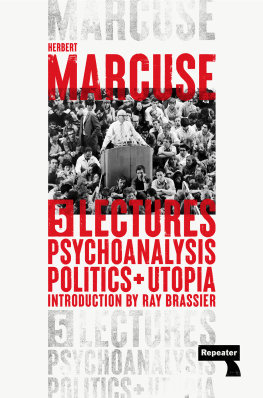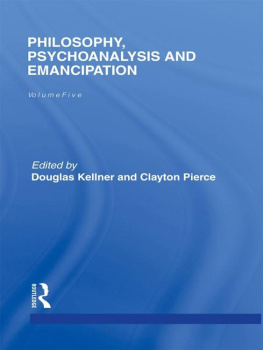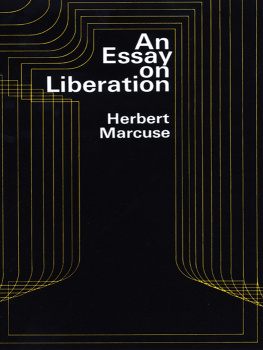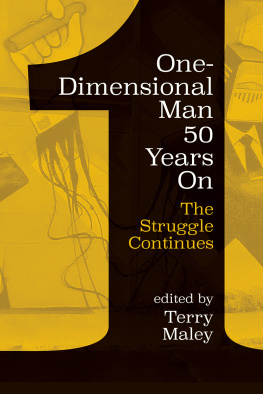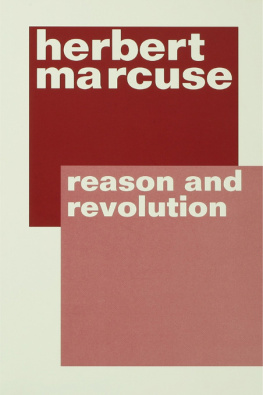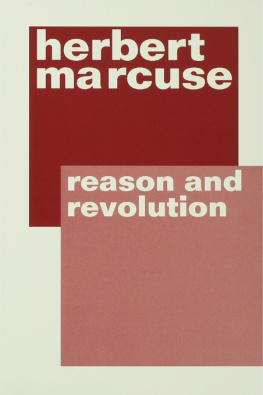This book is about Marcuse as a political philosopher. It concerns the least known, yet most inspiring aspect of his work, namely his conception of freedom. This conception of freedom has much to offer in terms of an alternative to dominant liberal views on freedom.
This conception of freedom constitutes the positive philosophy of a writer often decried for his pessimism.
The image of a free society of co-operation, mutual understanding and all round individual development forms the core of this conception of freedom.
From this idea of freedom Marcuse develops his critique of modern philosophical or scientific currents, of which his critique of Freud, Sartre and technological rationality are good examples.
Ten years after the events of the late sixties which almost overnight made his name known world wide, this aspect of his philosophy was still ill understood even by gifted political opponents. This is best illustrated by the following article by Maurice Cranston, which in other respects conveys well the sentiment of many fellow academics (The Guardian, July 31st, 1979). It also conveys typical misapprehensions, which this study hopes to dispel.
Herbert Marcuse, who died in West Germany on Sunday at the age of 81, was a neo-Marxist political philosopher who became suddenly world-famous, at the age of seventy, as the theorist of student revolts. In his writings he offered students a fairly modest share in the formation of a new revolutionary proletariat, but his bitter critique of existing society, his intense utopian aspiration, and his frank advocacy of violence and intolerance, won him an enthusiastic following among the more extreme elements of the Student Power movement. He became correspondingly unpopular with the American Right, and various threats were uttered against his life. Nevertheless he was allowed to retain his chair at the State university of California at San Diego well beyond retirement age.
Many of his former disciples in the student movement rejected his views in the early 1970s. He was howled down by students of the New Left in Germany during a visit there in 1971.
Two years earlier, he was attacked by Daniel Cohn-Bendit at a noisy lecture in Rome. Why did you accept dirty bourgeois money to talk about revolution?
Marcuse was born in Germany in 1898 into a cultivated bourgeois Jewish family, and received a typically thorough German education in philosophy and history. As a young man he fell under the influence of Rosa Luxembourgs Marxism, and later became one of the founders of the Frankfurt school of sociology, which cultivated, on Marxist lines, the sociology of knowledge. The rise of Nazism drove Marcuse and the other Frankfurt sociologists into exile, first to Paris and Geneva, then to America. Marcuse himself put forward at this time a sociological explanation of the Nazi system, namely that it was the characteristic ideology of capitalism at its monopoly stage.
He argued further that liberalism, which belonged to the earlier competitive phase of capitalism, must be considered outmoded, so that the only alternative to fascism was the introduction of socialism.
Marcuse never changed his mind on this subject. He was equally fixed in his belief that Stalinism was a perverted form of socialism.
His first work in English was Reason and Revolution, a defence of Hegel and of German metaphysics against the attacks both of empirically-minded Marxists and scientifically-oriented liberals. The book appeared in 1941 when German metaphysics was decidedly unfashionable, but nevertheless earned the author a certain academic reputation, and he was invited to become a professor at several of the leading American universities.
In 1955 he published his most original and perhaps his best book: Eros and Civilisation. In this he turned his attention from the old socialist idea of an economic revolution to the more anarchistic and utopian idea of emotional revolution.
He attacked Freuds notion that civilisation depends on the regression of instincts and the sublimation of sexual drives, and argued that while this was true of known, class-dominated civilisations, it need not be true of civilisation as such. Surplus repression, as he called it, could and should be dispensed with. Mens need for discipline in existing societies was the consequence of the perversion of mens nature by those societies. In a society without repression, very little discipline would be needed.
In Marcuses next important book, One Dimensional Man, the optimistic, humanistic spirit gave way to a note of impatience and intolerance. Here he attacked the affluent society, and especially American society, as an unmitigated evil, not only because it corrupted the working classes into accepting capitalism, but because it distorted the will of men by introjecting false desires. Marcuse concluded that democracy, understood as accepting the decisions of the majority, was an unacceptable system while the majority remained mentally enslaved.


